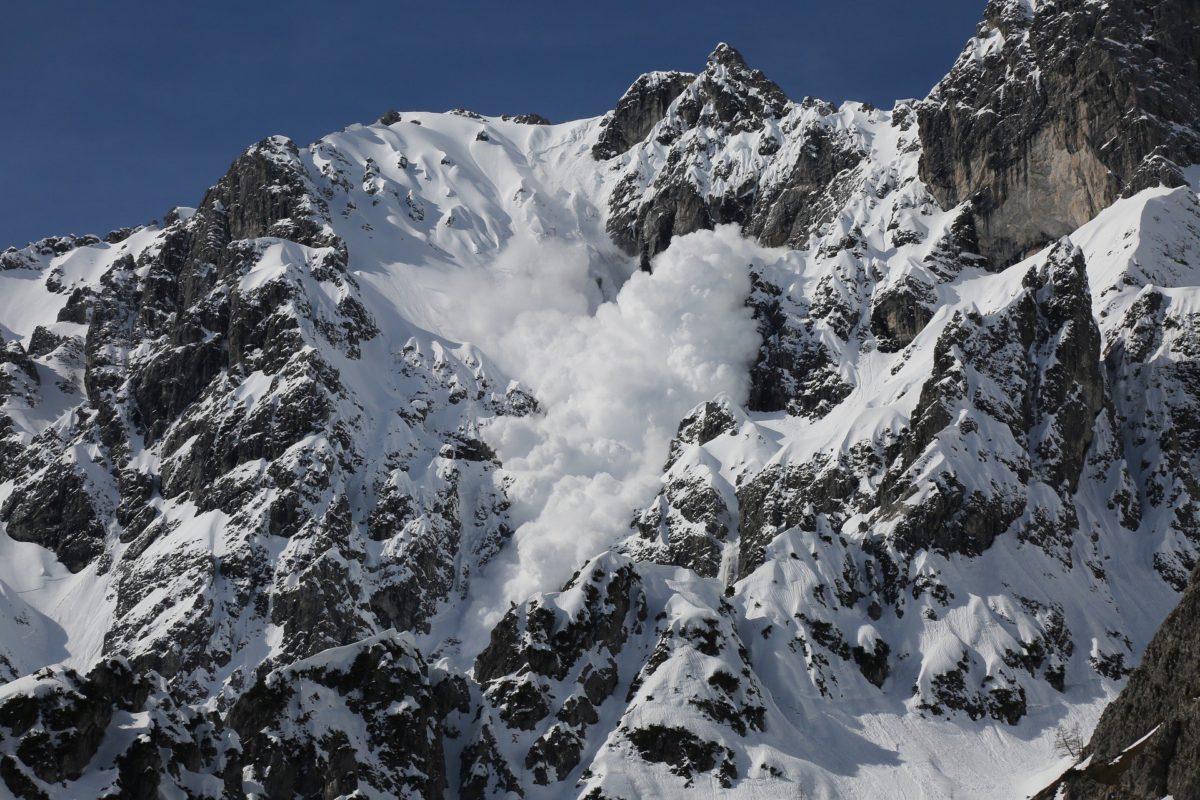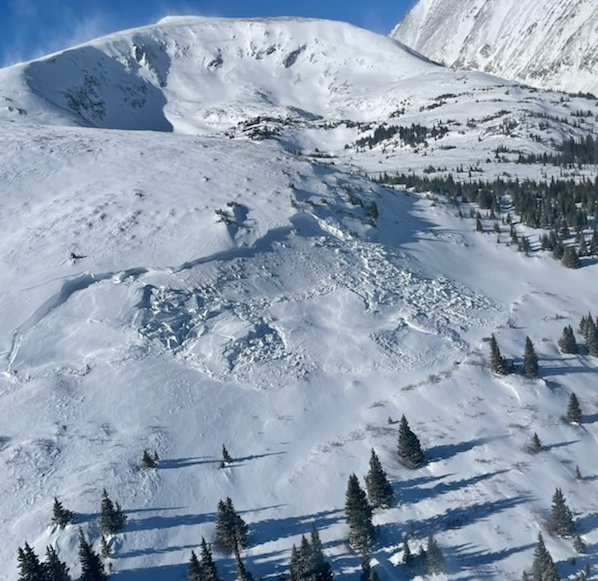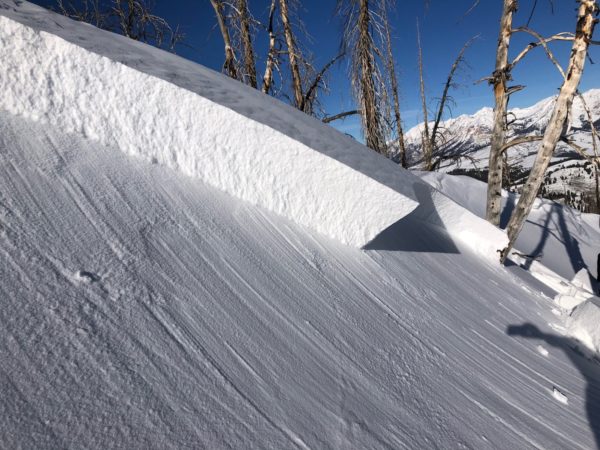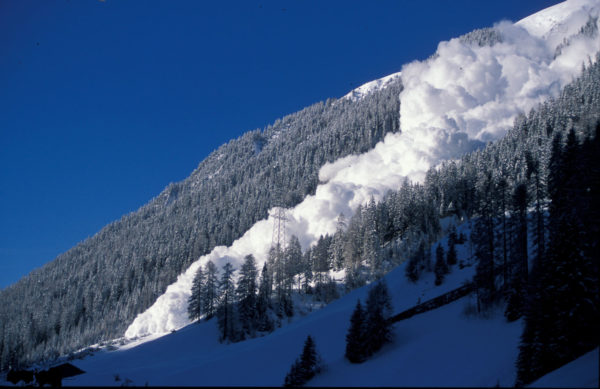An avalanche that breaks in dry snow.
Dry snow is below freezing in temperature, characterized by frozen ice crystals lacking moisture. Dry avalanches can be either dry loose avalanches or dry slabs. Dry snow fails when additional stress overcomes the strength of the snowpack, either from new snow loading, wind loading, falling cornices, or human triggers. Dry avalanches are characterized by relatively fast flow, often with a powder cloud. They are the most common type of avalanche encountered during typical mid-winter conditions and account for the majority of avalanche fatalities.



